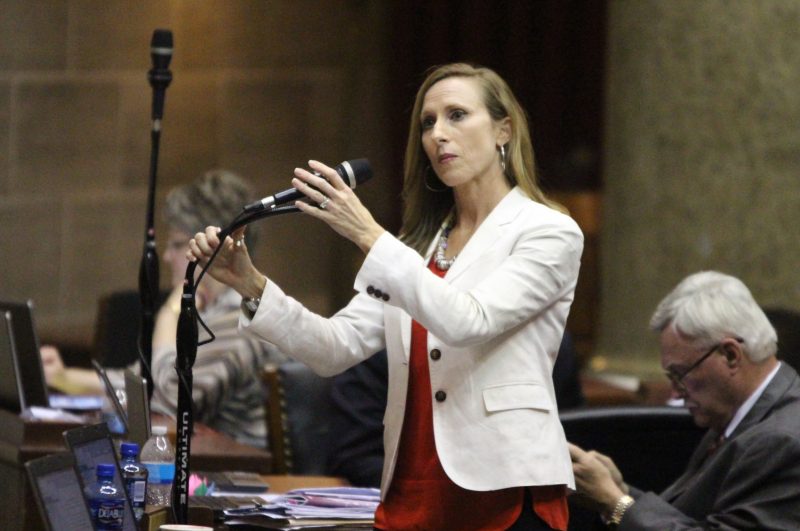JEFFERSON CITY, Mo. — A bill, given initial approval by the House, enabling health care institutions to distribute free, clean needles hits close to home for one member of the body.
Rep. Cora Faith Walker’s sister-in-law died from an opioid-related overdose this last November. While in the hospital being treated for an infection related to the use of dirty needles, Walker’s sister-in-law took drugs that caused her to overdose.
“She was a mother, she was a grandmother, she was a wife, she was a sister and if she would have had access to clean needles, there is a chance she might still be with us today,” Walker said. “So while this bill might not be perfect, and while it may not be the silver bullet for solving the opioid epidemic, if it can save just one life, just one, we should support this bill.”
HB 1620 would exempt health care entities registered with the Department of Health and Senior Services that distribute hypodermic needles or syringes from violating drug paraphernalia laws.
On Tuesday, the Missouri House perfected the Safe Syringe Access bill after more than an hour of debate with huge bipartisan support and few speaking in opposition.
“This bill affects us all,” bill sponsor Rep. Holly Rehder said. “It is a public health bill.”
Rehder and others in support came armed with data and research to support the legislation. Rehder cited that syringe access programs cause a 13 percent reduction in drug use, decrease needle sharing by 20 percent, and participants are five times more likely to get into treatment programs. The Journal of American Medical Association credits syringe access programs in helping lower HIV incidents by 80 percent among people who inject drug.
“What we have been doing isn’t working,” said Rep. Lynn Morris, who at one point considered opposing the bill. “I think it is time to think outside the box.”
The body was not suggesting that this is a “silver bullet” for the drug epidemic in the country but rather as adding “another tool to the tool box.”
“This epidemic is the largest epidemic America has seen,” Rehder said. “And it is all hands on deck to save our children, to save our families and this is just one piece of that.”
The program “meets people where they are at,” giving drug users access to a health professional that can given them education material and help get them treatment if they so choose. Martha Stevens referred to the program as a “harm reduction policy.”
Individuals can exchange used, “dirty” needles for clean, unused ones, which could reduce the amount of needles left in public places while reducing diseases obtained from contaminated needles — which could lead to costs savings for the state.
Rep. Keith Frederick called the syringe access program the fiscally responsible thing to do and the morally responsible thing to do.
“Now we are literally going to put the needle in their arm,” said Rep Shane Roden, who voiced strong opposition to the legislation.

Alisha Shurr was a reporter for The Missouri Times and The Missouri Times Magazine. She joined The Missouri Times in January 2018 after working as a copy editor for her hometown newspaper in Southern Oregon. Alisha is a graduate of Kansas State University.









